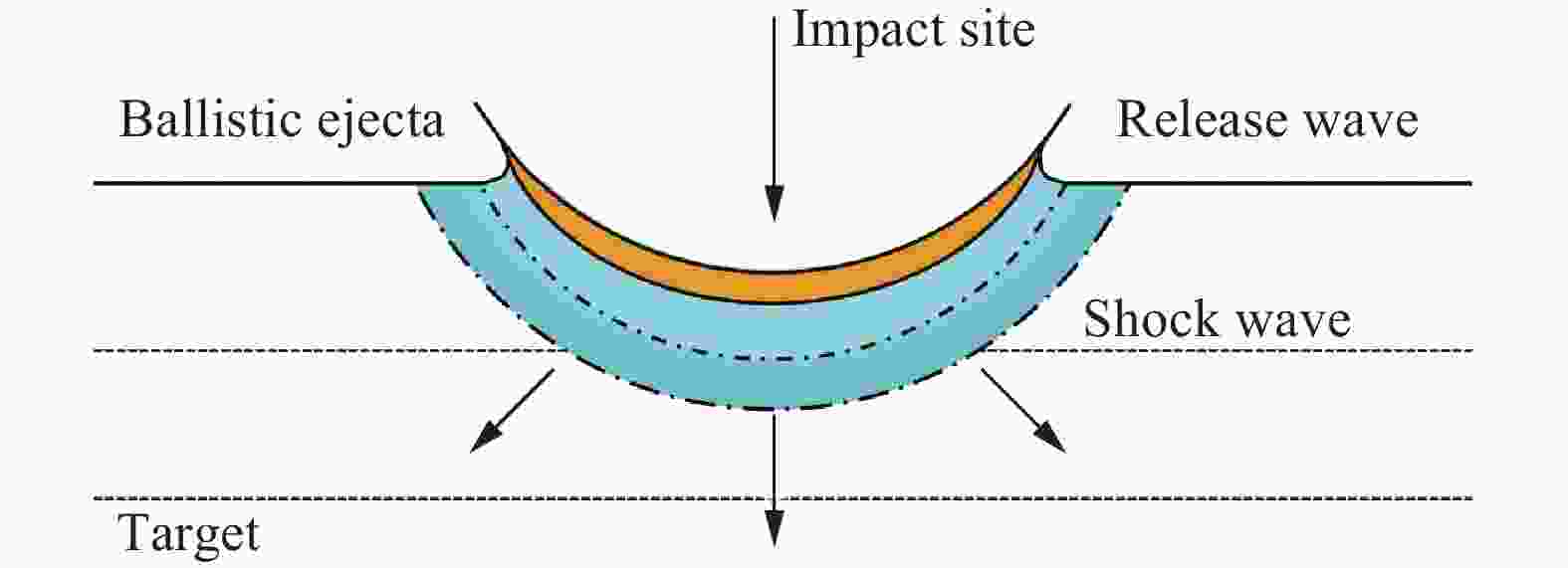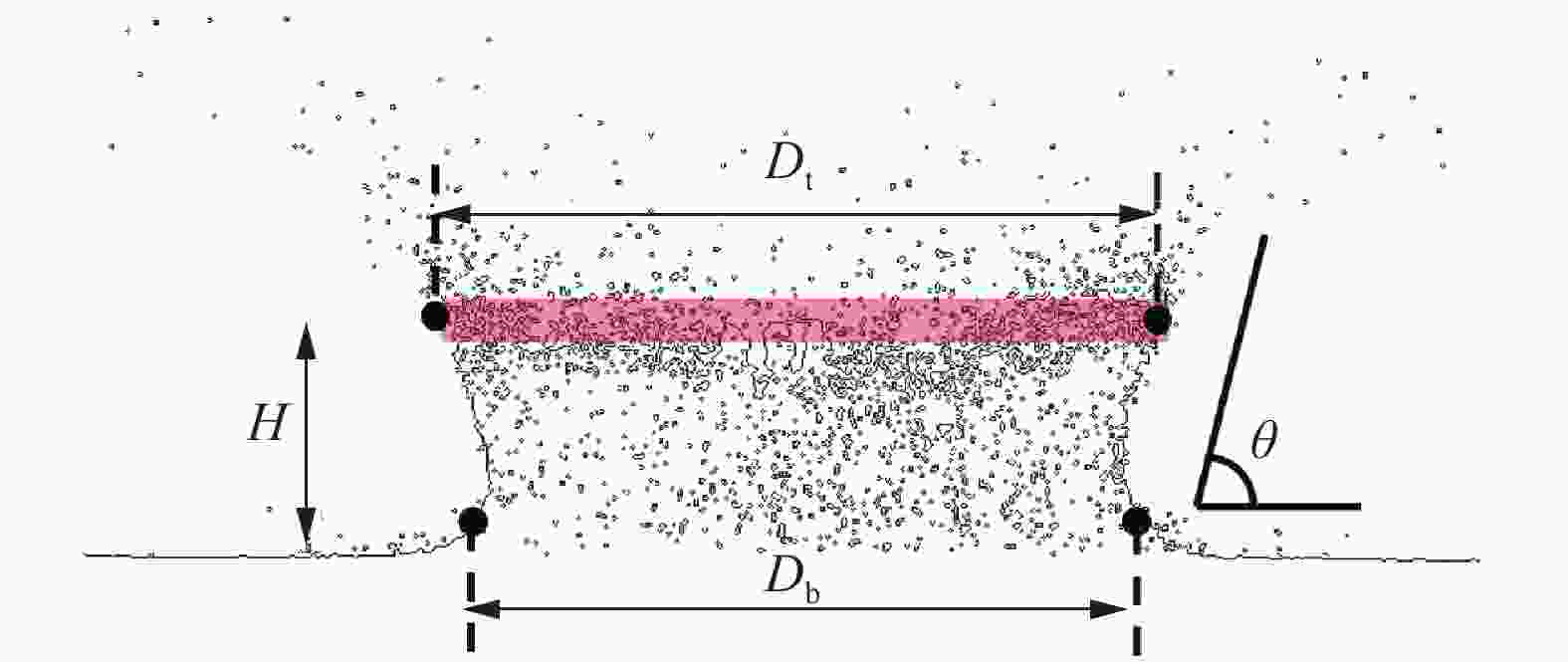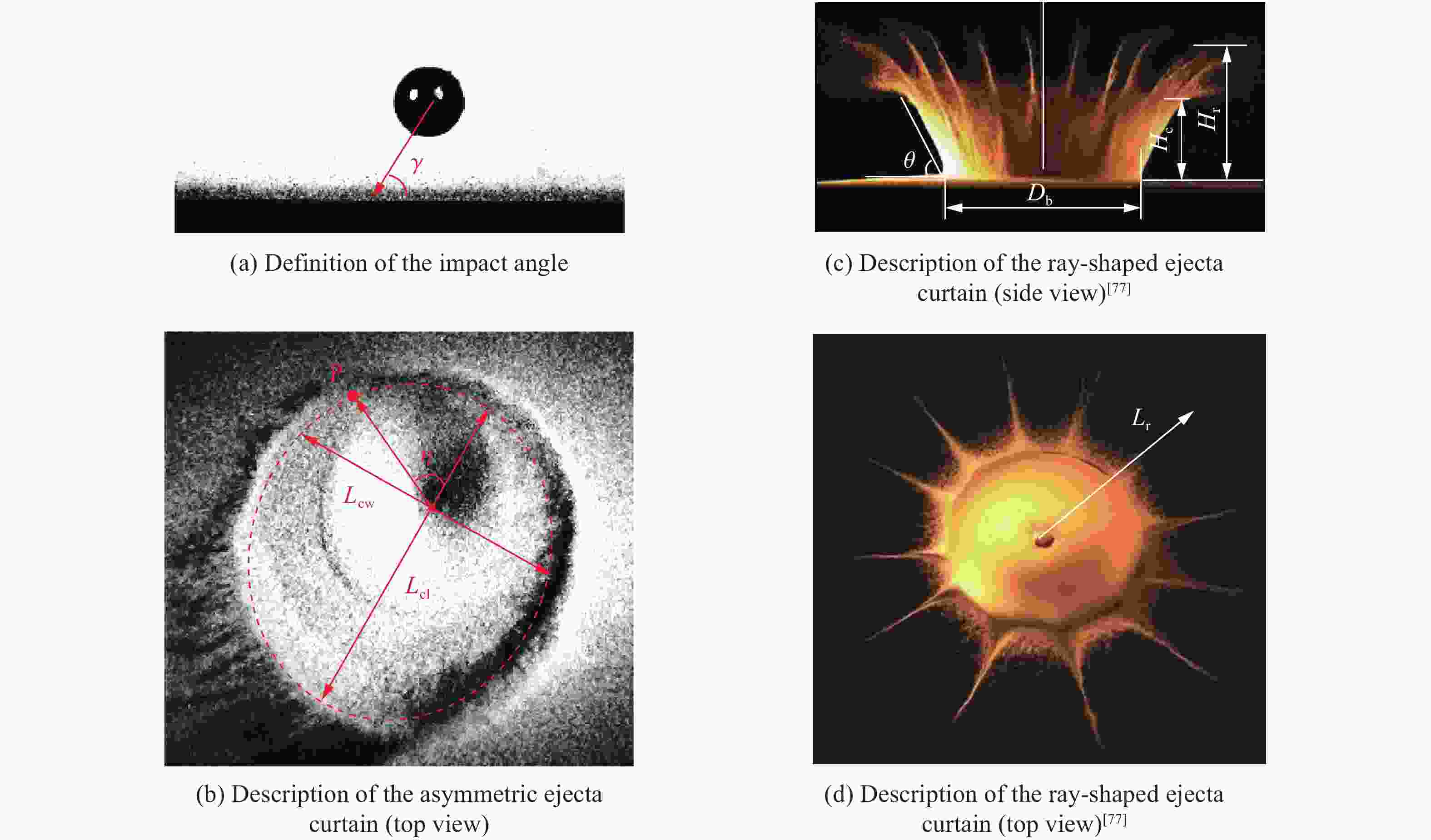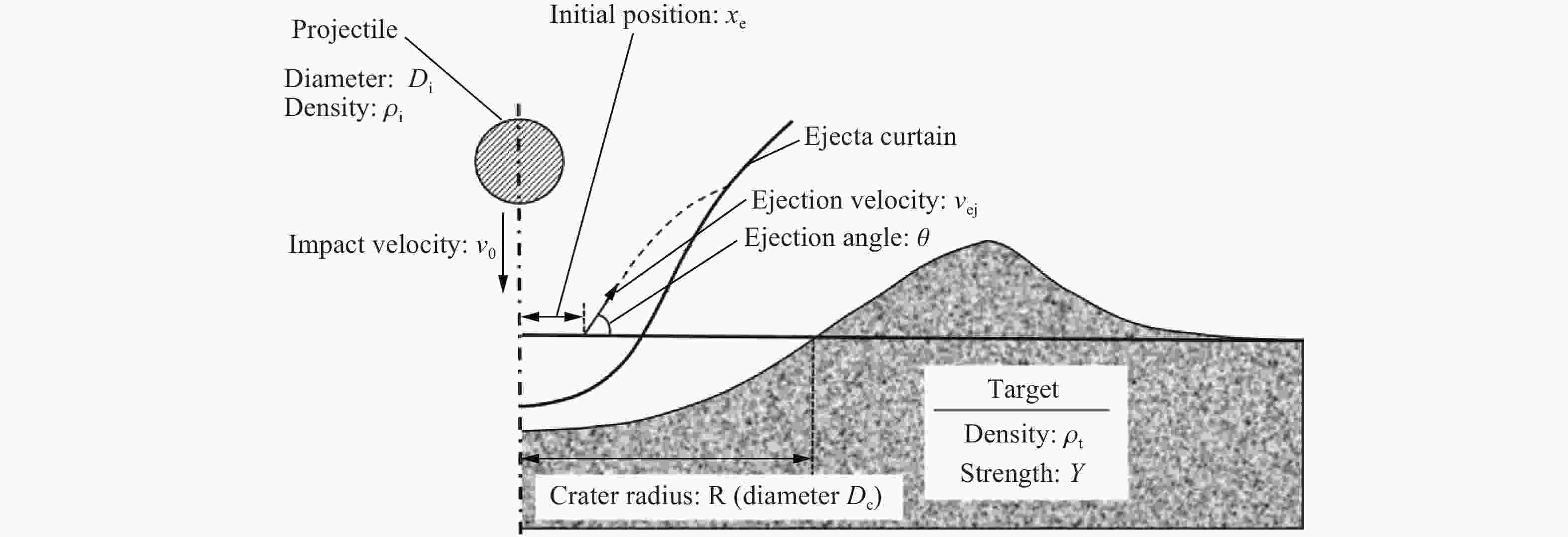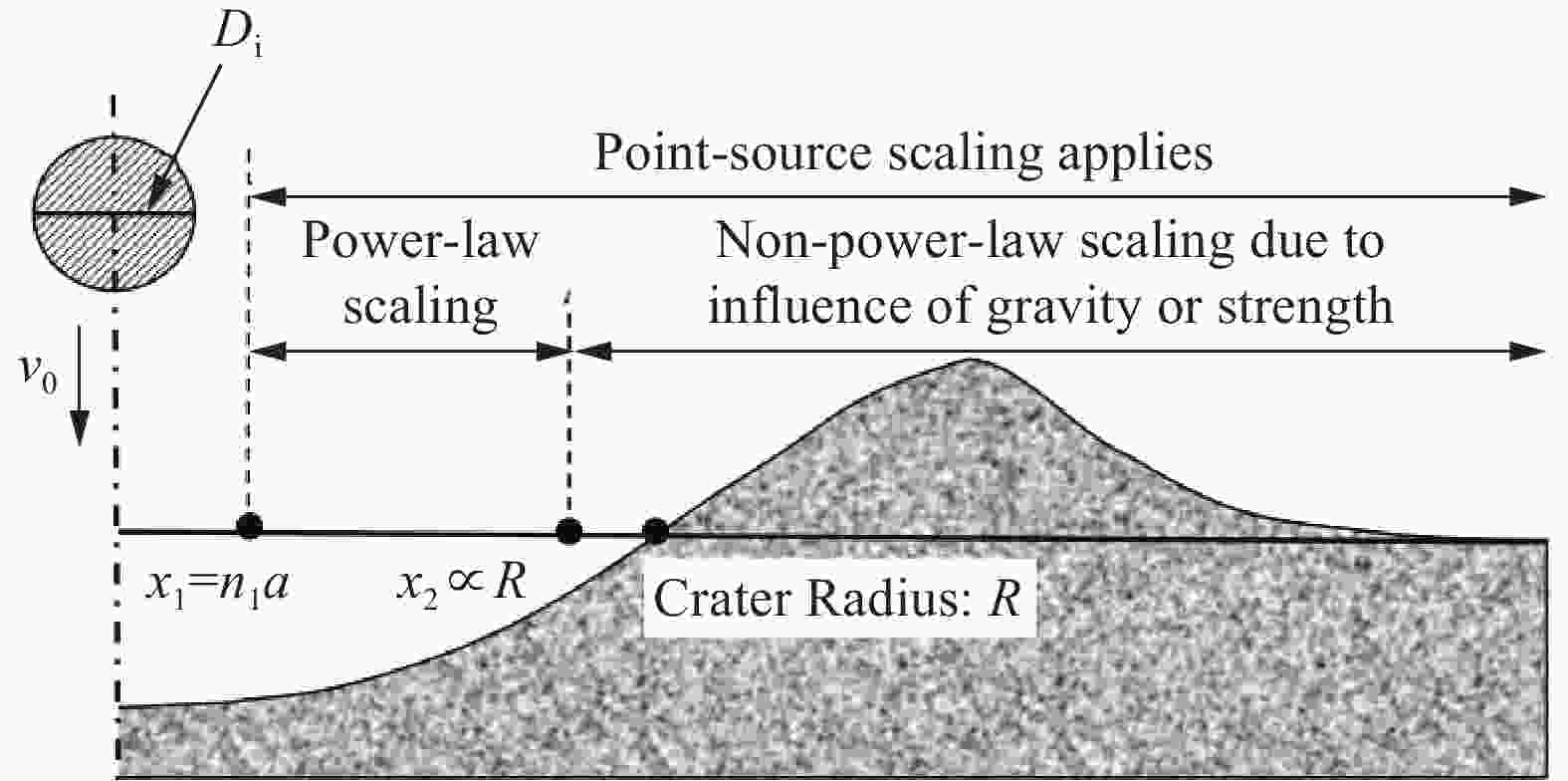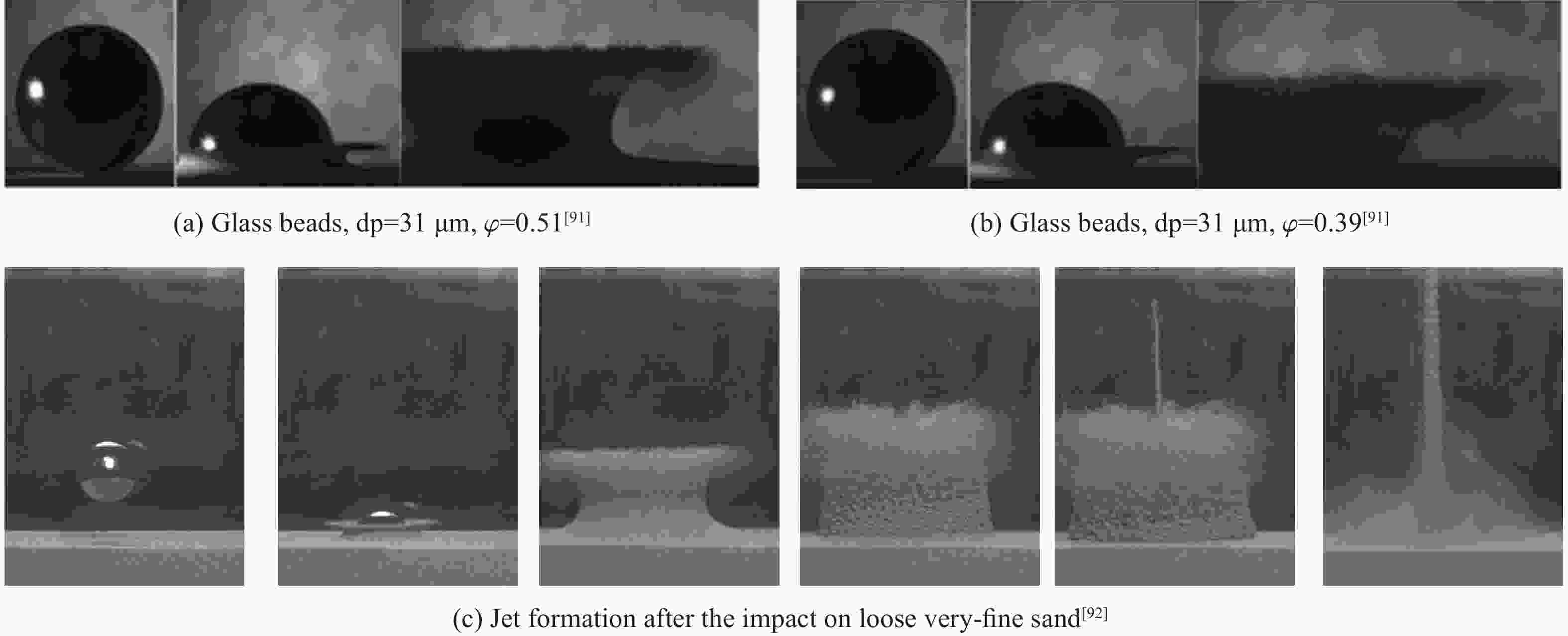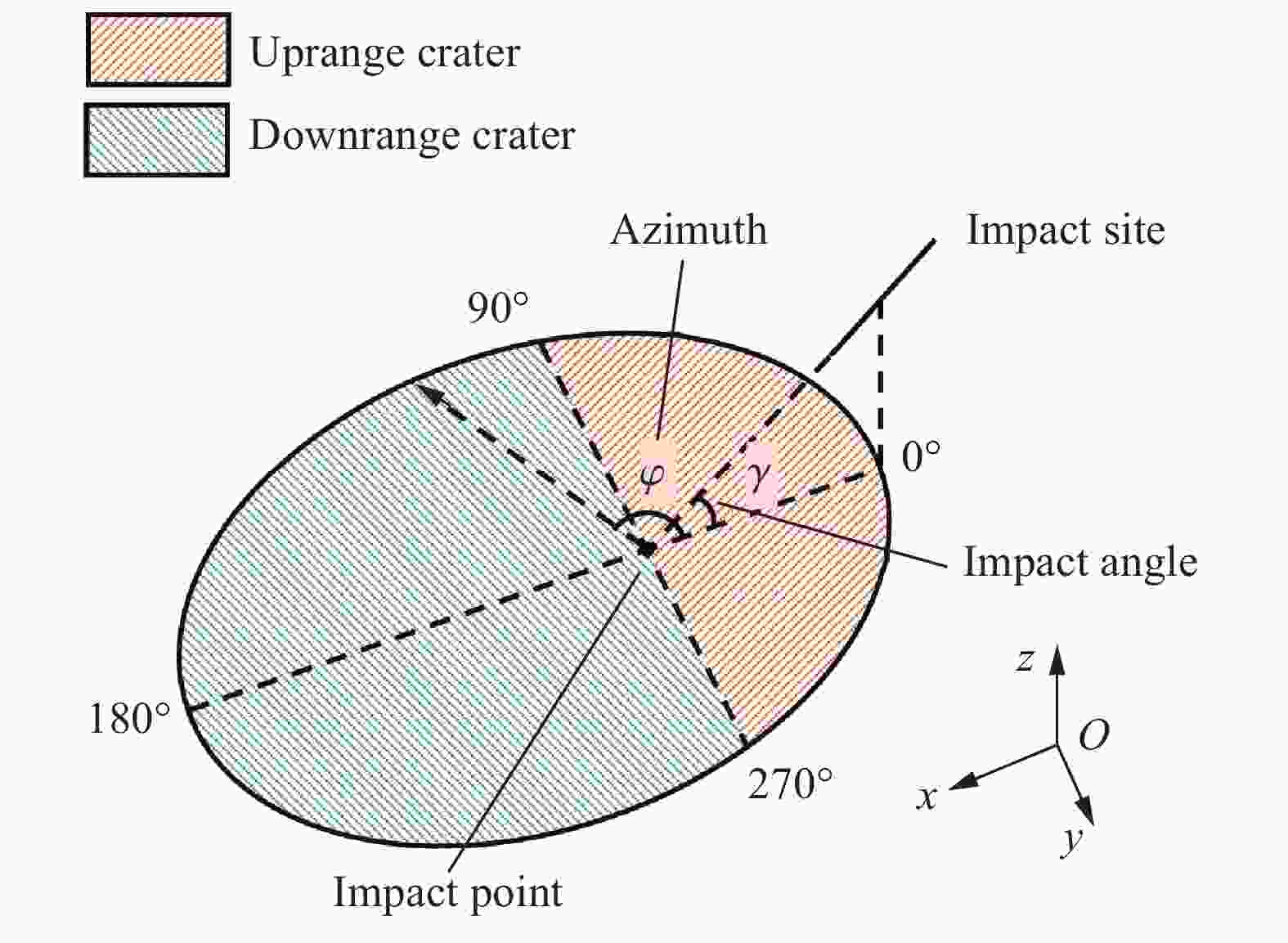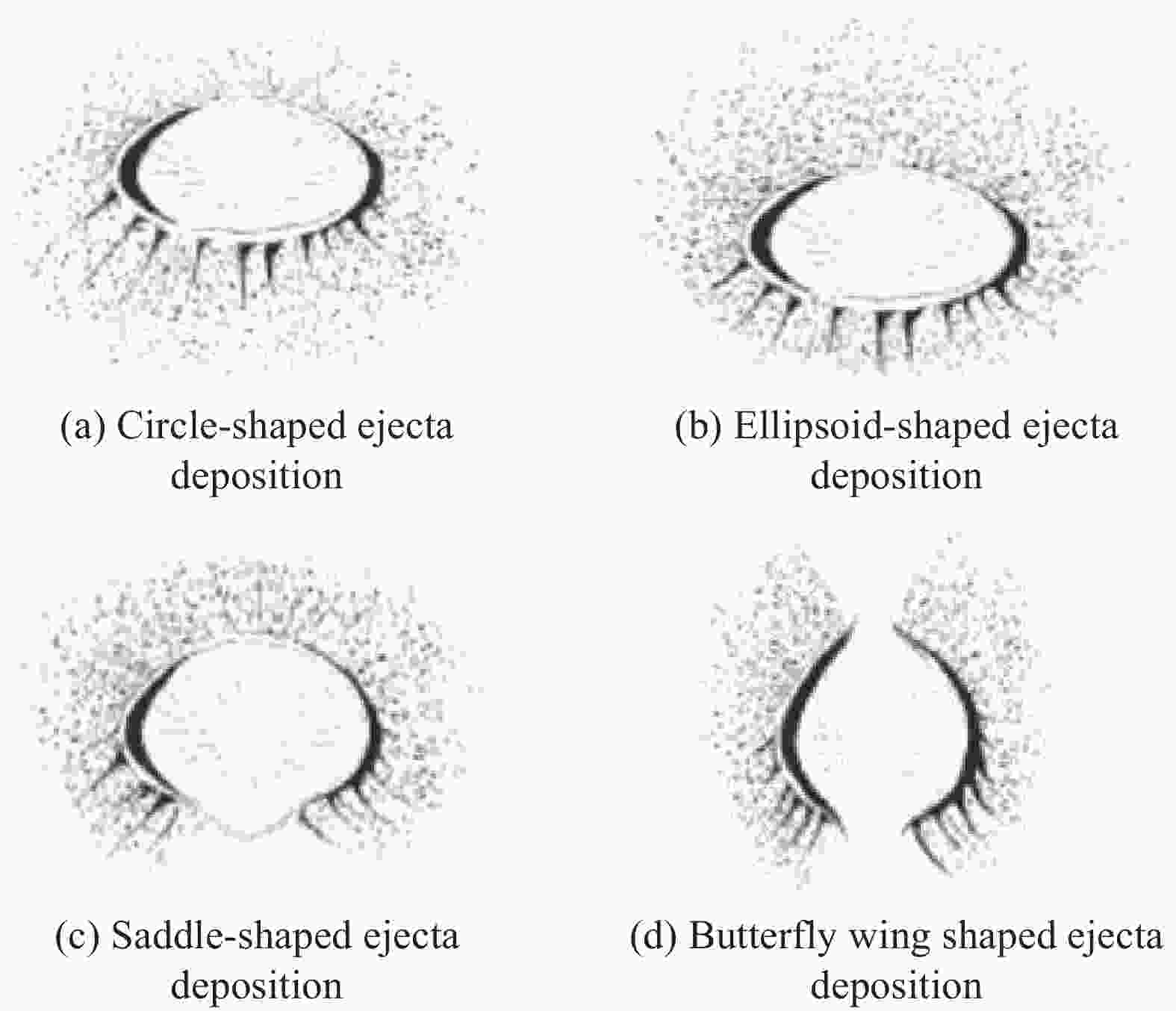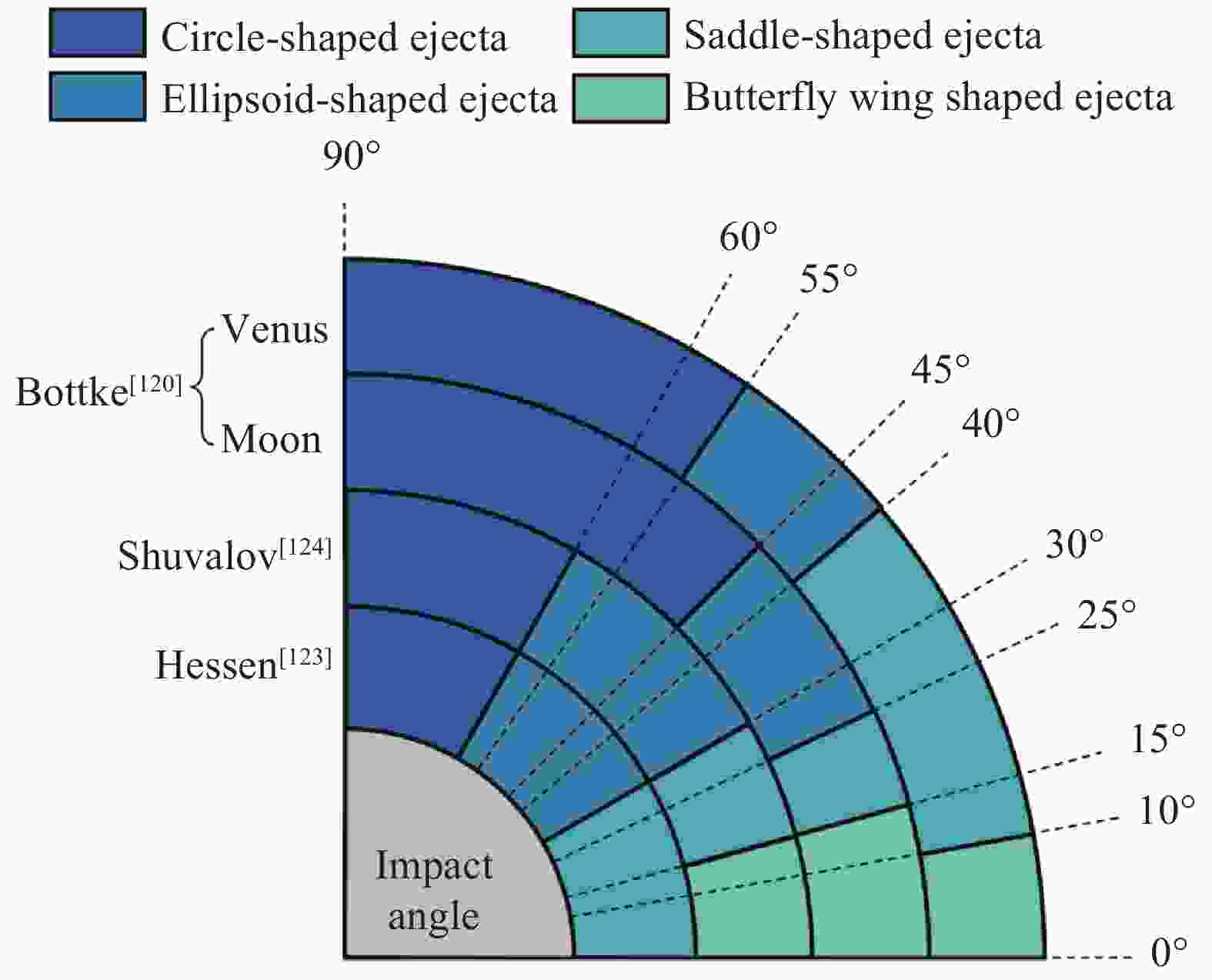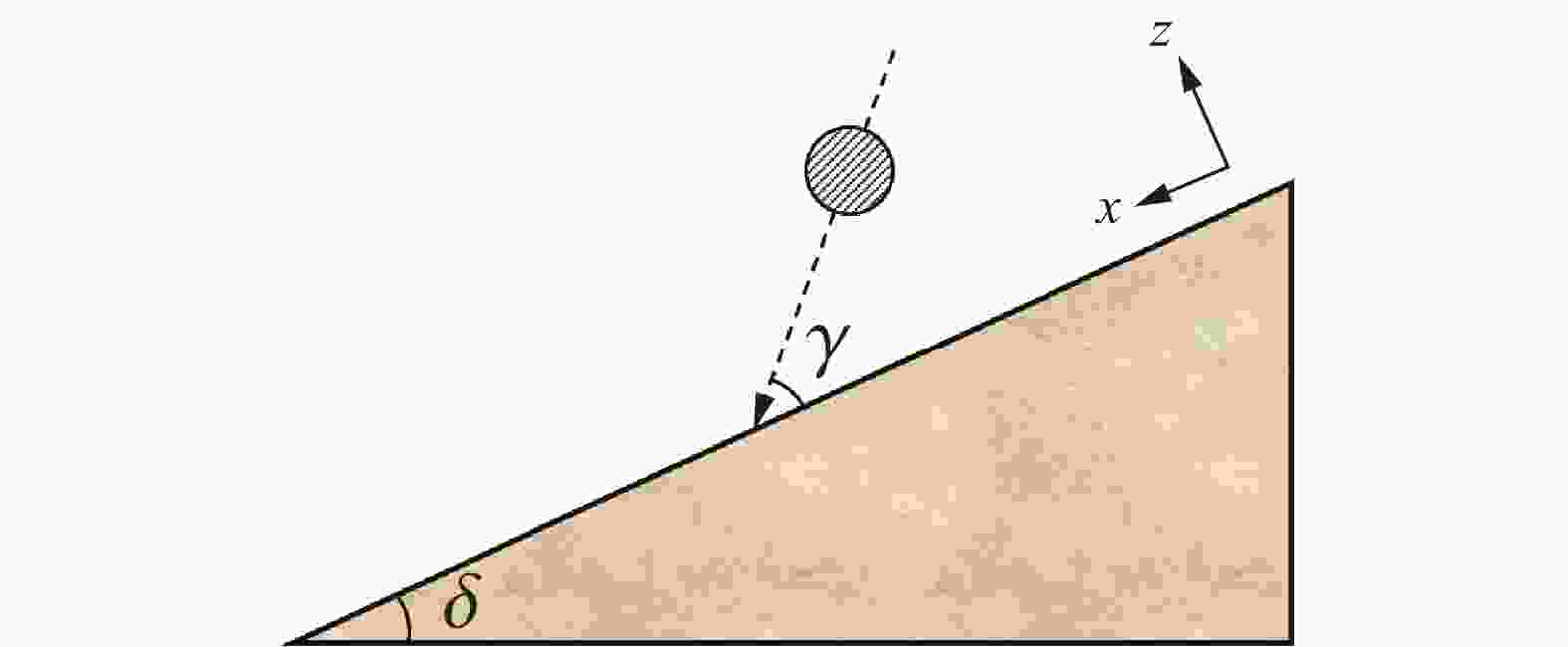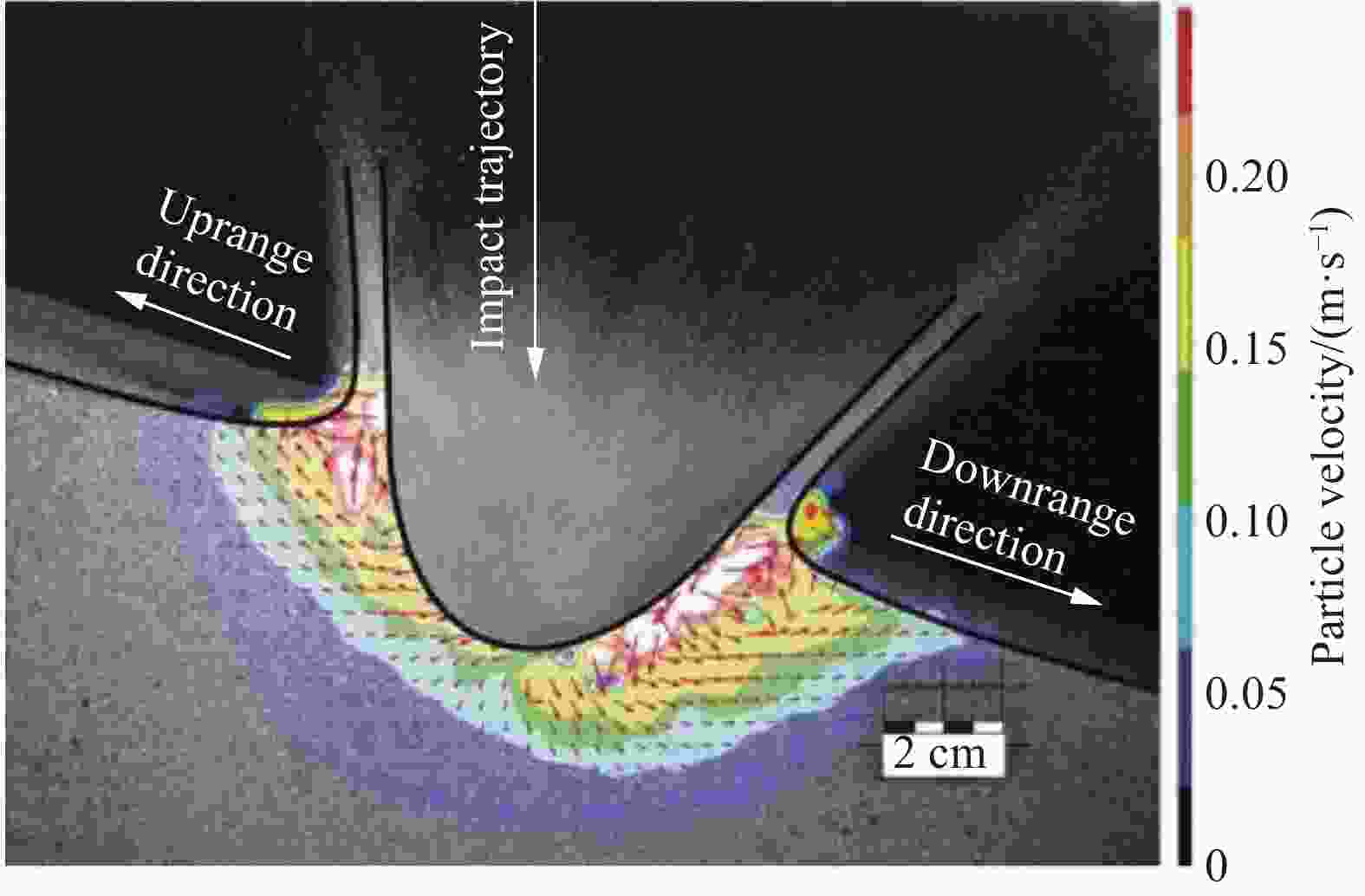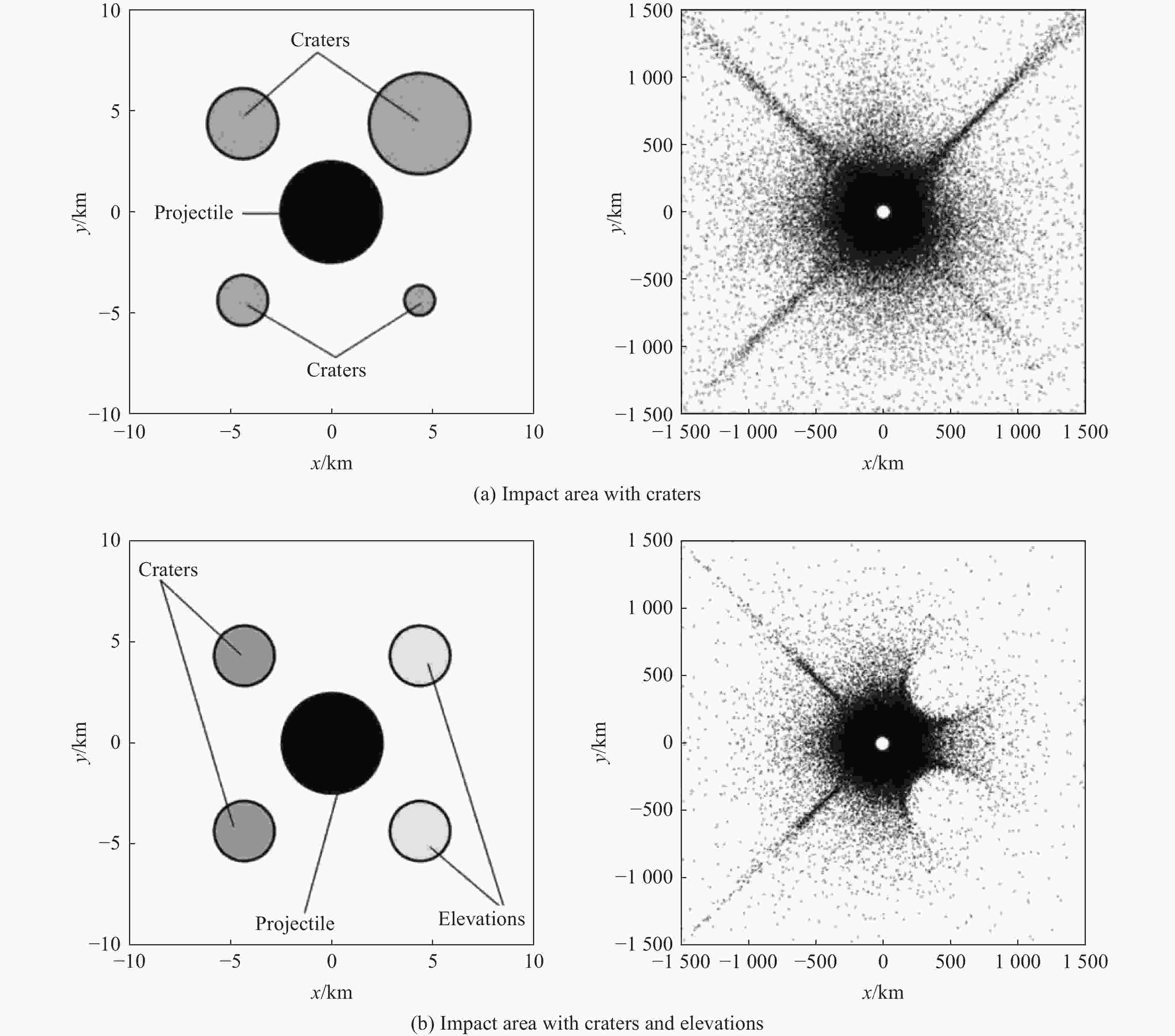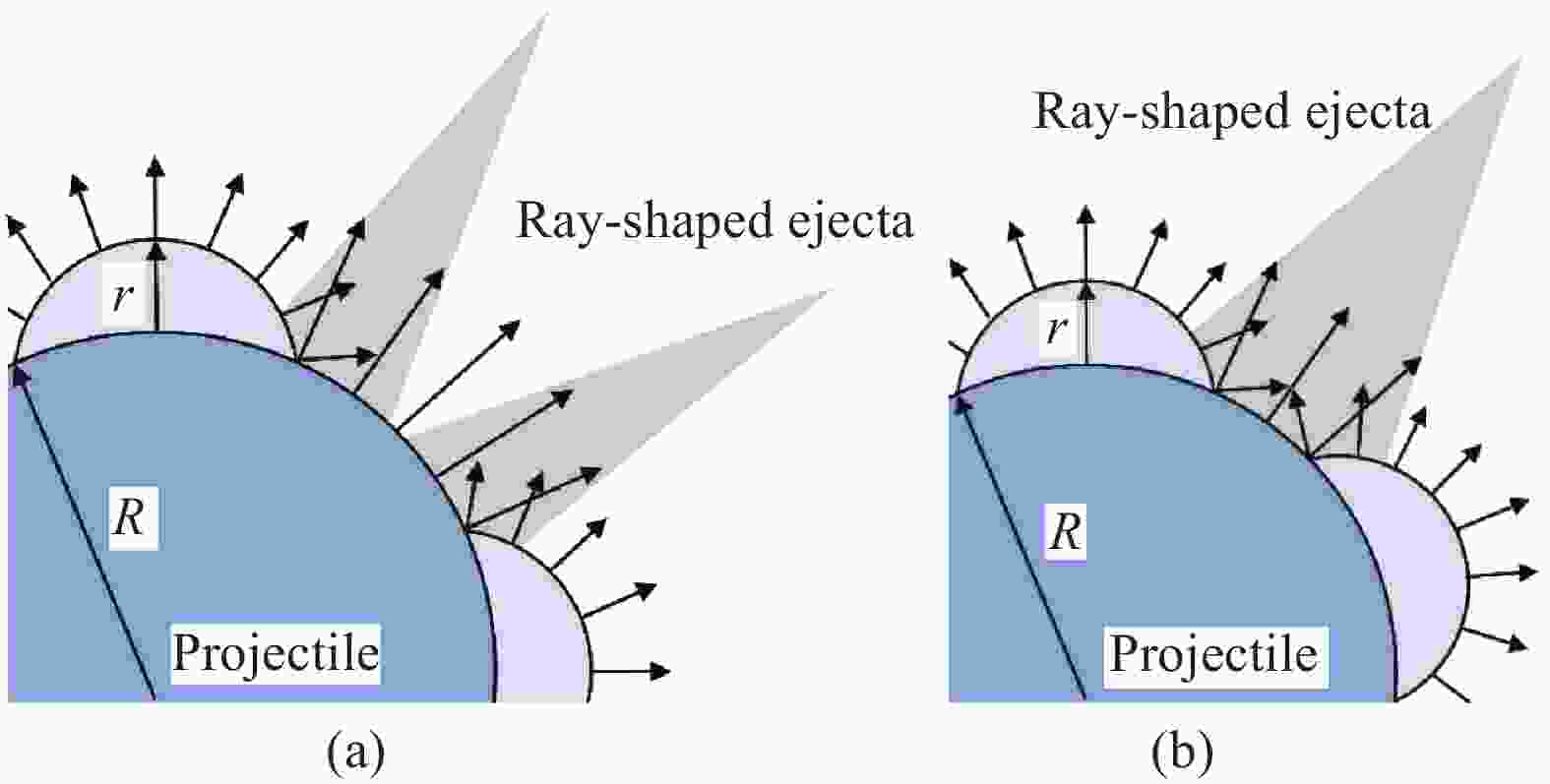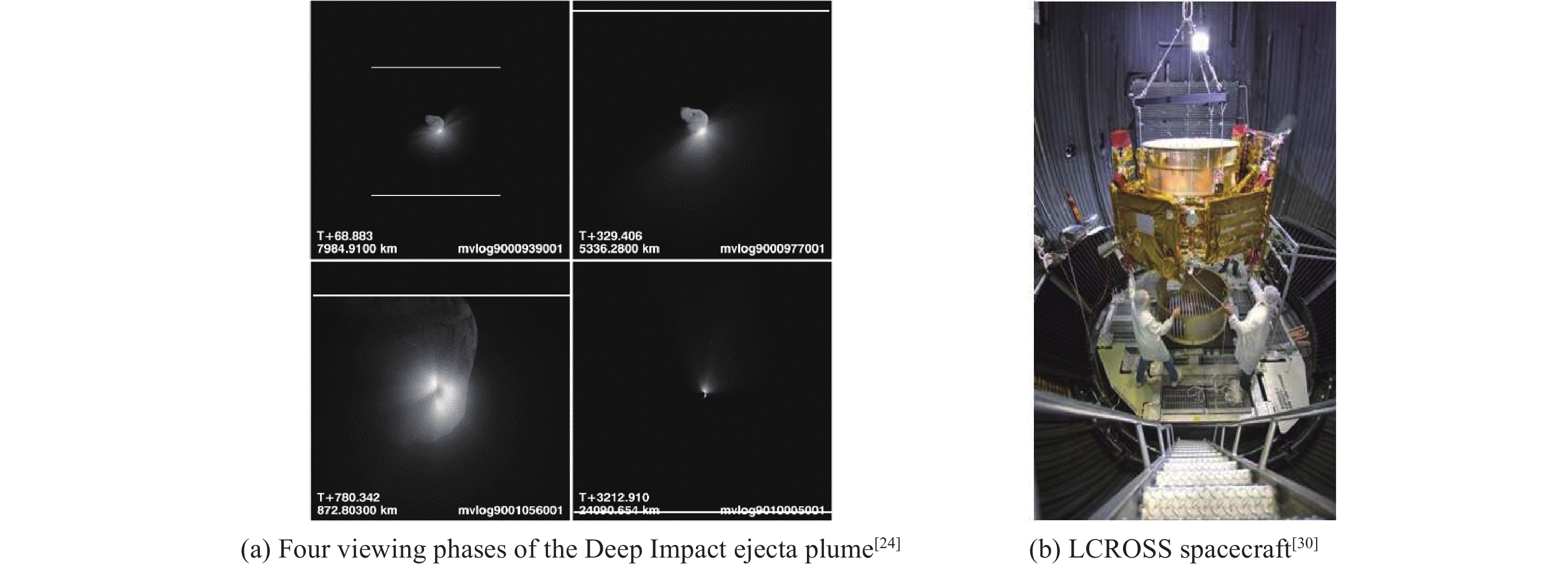| [1] |
OSINSKI G R, PIERAZZO E. Impact cratering: processes and products [M]//OSINSKI G R, PIERAZZO E. Impact Cratering: Processes and Products. Chichester: Blackwell Publishing Ltd, 2013: 1–20. DOI: 10.1002/9781118447307.ch1.
|
| [2] |
BELTON M J S, VEVERKA J, THOMAS P, et al. Galileo encounter with 951 Gaspra: first pictures of an asteroid [J]. Science, 1992, 257(5077): 1647–1652. DOI: 10.1126/science.257.5077.1647.
|
| [3] |
BELTON M J S, CHAPMAN C R, VEVERKA J, et al. First images of asteroid 243 ida [J]. Science, 1994, 265(5178): 1543–1547. DOI: 10.1126/science.265.5178.1543.
|
| [4] |
BURATTI B J, THOMAS P C, ROUSSOS E, et al. Close Cassini flybys of Saturn’s ring moons pan, Daphnis, Atlas, Pandora, and Epimetheus [J]. Science, 2019, 364(6445): eaat2349. DOI: 10.1126/science.aat2349.
|
| [5] |
PORCO C C, BAKER E, BARBARA J, et al. Imaging of titan from the Cassini spacecraft [J]. Nature, 2005, 434(7030): 159–168. DOI: 10.1038/nature03436.
|
| [6] |
GRUNDY W M, BINZEL R P, BURATTI B J, et al. Surface compositions across Pluto and Charon [J]. Science, 2016, 351(6279): aad9189. DOI: 10.1126/science.aad9189.
|
| [7] |
ZHU M H, FA W Z, IP W H, et al. Morphology of asteroid (4179) Toutatis as imaged by Chang’E-2 spacecraft [J]. Geophysical Research Letters, 2014, 41(2): 328–333. DOI: 10.1002/2013GL058914.
|
| [8] |
HOLSAPPLE K A. Catastrophic disruptions and cratering of Solar System bodies: a review and new results [J]. Planetary and Space Science, 1994, 42(12): 1067–1078. DOI: 10.1016/0032-0633(94)90007-8.
|
| [9] |
PATI J K, REIMOLD W U. Impact cratering—fundamental process in geoscience and planetary science [J]. Journal of Earth System Science, 2007, 116(2): 81–98. DOI: 10.1007/s12040-007-0009-3.
|
| [10] |
COLLINS G S, MELOSH H J, OSINSKI G R. The impact-cratering process [J]. Elements, 2012, 8(1): 25–30. DOI: 10.2113/gselements.8.1.25.
|
| [11] |
MICHEL P, MORBIDELLI A. Review of the population of impactors and the impact cratering rate in the inner solar system [J]. Meteoritics & Planetary Science, 2007, 42(11): 1861–1869. DOI: 10.1111/j.1945-5100.2007.tb00545.x.
|
| [12] |
SUGIMOTO C, TATSUMI E, CHO Y, et al. High-resolution observations of bright boulders on asteroid Ryugu: 1. size frequency distribution and morphology [J]. Icarus, 2021, 369: 114529. DOI: 10.1016/j.icarus.2021.114529.
|
| [13] |
GLASS B P, SIMONSON B M. Distal impact ejecta layers: spherules and more [J]. Elements, 2012, 8(1): 43–48. DOI: 10.2113/gselements.8.1.43.
|
| [14] |
WEISS D K, HEAD J W. Ejecta mobility of layered ejecta craters on Mars: assessing the influence of snow and ice deposits [J]. Icarus, 2014, 233: 131–146. DOI: 10.1016/j.icarus.2014.01.038.
|
| [15] |
MINTON D A, FASSETT C I, HIRABAYASHI M, et al. The equilibrium size-frequency distribution of small craters reveals the effects of distal ejecta on lunar landscape morphology [J]. Icarus, 2019, 326: 63–87. DOI: 10.1016/j.icarus.2019.02.021.
|
| [16] |
WULF G, KENKMANN T. High-resolution studies of double-layered ejecta craters: morphology, inherent structure, and a phenomenological formation model [J]. Meteoritics & Planetary Science, 2015, 50(2): 173–203. DOI: 10.1111/maps.12416.
|
| [17] |
OSINSKI G R, TORNABENE L L, GRIEVE R A F. Impact ejecta emplacement on terrestrial planets [J]. Earth and Planetary Science Letters, 2011, 310(3/4): 167–181. DOI: 10.1016/j.jpgl.2011.08.012.
|
| [18] |
XIE M G, LIU T T, XU A A. Ballistic sedimentation of impact crater ejecta: implications for the provenance of lunar samples and the resurfacing effect of ejecta on the lunar surface [J]. Journal of Geophysical Research: Planets, 2020, 125(5): e2019JE006113. DOI: 10.1029/2019JE006113.
|
| [19] |
程彬, 于洋, 宝音贺西. 小天体接触探测颗粒动力学研究进展 [J]. 中国科学: 技术科学, 2021, 51(11): 1299–1314. DOI: 10.1360/SST-2021-0169.CHENG B, YANG Y, BAOYIN H X. Recent advances in granular dynamics for small-body touchdown missions [J]. SCIENTIA SINICA Technologica, 2021, 51(11): 1299–1314. DOI: 10.1360/SST-2021-0169.
|
| [20] |
肖智勇, 岳宗玉, 谢明刚, 等. 月球的撞击历史及其对月表物质的改造 [J]. 矿物岩石地球化学通报, 2023, 42(3): 462–477. DOI: 10.19658/j.issn.1007-2802.2023.42.051.XIAO Z Y, YUE Z Y, XIE M G, et al. Impact history of the Moon and its modification of lunar surface materials [J]. Bulletin of Mineralogy, Petrology and Geochemistry, 2023, 42(3): 462–477. DOI: 10.19658/j.issn.1007-2802.2023.42.051.
|
| [21] |
张荣桥, 黄江川, 赫荣伟, 等. 小行星探测发展综述 [J]. 深空探测学报, 2019, 6(5): 417–423, 455. DOI: 10.15982/j.issn.2095-7777.2019.05.002.ZHANG R Q, HUANG J C, HE R W, et al. The development overview of asteroid exploration [J]. Journal of Deep Space Exploration, 2019, 6(5): 417–423, 455. DOI: 10.15982/j.issn.2095-7777.2019.05.002.
|
| [22] |
李春来, 刘建军, 严韦, 等. 小行星探测科学目标进展与展望 [J]. 深空探测学报, 2019, 6(5): 424–436. DOI: 10.15982/j.issn.2095-7777.2019.05.003.LI C L, LIU J J, YAN W, et al. Overview of scientific objectives for minor planets exploration [J]. Journal of Deep Space Exploration, 2019, 6(5): 424–436. DOI: 10.15982/j.issn.2095-7777.2019.05.003.
|
| [23] |
A'HEARN M F, BELTON M J S, DELAMERE W A, et al. Deep impact: excavating comet Tempel 1 [J]. Science, 2005, 310(5746): 258–264. DOI: 10.1126/science.1118923.
|
| [24] |
RICHARDSON J E, MELOSH H J, LISSE C M, et al. A ballistics analysis of the deep impact ejecta plume: determining Comet Tempel 1’s gravity, mass, and density [J]. Icarus, 2007, 191(2S): 176–209. DOI: 10.1016/j.icarus.2007.08.033.
|
| [25] |
BENSCH F, MELNICK G J, NEUFELD D A, et al. Submillimeter wave astronomy satellite observations of comet 9P/Tempel 1 and deep impact [J]. Icarus, 2006, 184(2): 602–610. DOI: 10.1016/j.icarus.2006.05.016.
|
| [26] |
HELDMANN J L, COLAPRETE A, WOODEN D H, et al. LCROSS (lunar crater observation and sensing satellite) observation campaign: strategies, implementation, and lessons learned [J]. Space Science Reviews, 2012, 167(1/2/3/4): 93–140. DOI: 10.1007/s11214-011-9759-y.
|
| [27] |
GLADSTONE G R, HURLEY D M, RETHERFORD K D, et al. LRO-LAMP observations of the LCROSS impact plume [J]. Science, 2010, 330(6003): 472–476. DOI: 10.1126/science.1186474.
|
| [28] |
COLAPRETE A, SCHULTZ P, HELDMANN J, et al. Detection of water in the LCROSS ejecta plume [J]. Science, 2010, 330(6003): 463–468. DOI: 10.1126/science.1186986.
|
| [29] |
郑永春, 张锋, 付晓辉, 等. 月球上的水: 探测历程与新的证据 [J]. 地质学报, 2011, 85(7): 1069–1078.ZHENG Y C, ZHANG F, FU X H, et al. Water on the moon: exploration history and new evidence [J]. Acta Geologica Sinica, 2011, 85(7): 1069–1078.
|
| [30] |
COLAPRETE A , ENNICO K , WOODEN D, et al. Water and more: an overview of LCROSS impact results[C]//Lunar & Planetary Institute Science Conference Abstracts. Bulletin of the American Astronomical Society, 2010: 42.
|
| [31] |
ENNICO-SMITH K. Lunar crater observation and sensing satellite (LCROSS) [M]//CUDNIK B. Encyclopedia of Lunar Science. Cham: Springer, 2023: 506–520. DOI: 10.1007/978-3-319-14541-9_24.
|
| [32] |
BOTTKE JR W F, DURDA D D, NESVORNÝ D, et al. The fossilized size distribution of the main asteroid belt [J]. Icarus, 2005, 175(1): 111–140. DOI: 10.1016/j.icarus.2004.10.026.
|
| [33] |
IZIDORO A, RAYMOND S N, PIERENS A, et al. The asteroid belt as a relic from a chaotic early solar system [J]. The Astrophysical Journal, 2016, 833(1): 40. DOI: 10.3847/1538-4357/833/1/40.
|
| [34] |
PARKER E T, CHAN Q H S, GLAVIN D P, et al. Non-protein amino acids identified in carbon-rich Hayabusa particles [J]. Meteoritics & Planetary Science, 2022, 57(4): 776–793. DOI: 10.1111/maps.13794.
|
| [35] |
NARAOKA H, TAKANO Y, DWORKIN J P, et al. Soluble organic compounds in asteroid 162173 Ryugu [C]// LISA G, EILEEN S. 53rd Lunar and Planetary Science Conference. USA, 2022, 2678: 1781.
|
| [36] |
KITAZATO K, MILLIKEN R E, IWATA T, et al. The surface composition of asteroid 162173 Ryugu from Hayabusa2 near-infrared spectroscopy [J]. Science, 2019, 364(6437): 272–275. DOI: 10.1126/science.aav7432.
|
| [37] |
HAMILTON V E, SIMON A A, CHRISTENSEN P R, et al. Evidence for widespread hydrated minerals on asteroid (101955) Bennu [J]. Nature Astronomy, 2019, 3(4): 332–340. DOI: 10.1038/s41550-019-0722-2.
|
| [38] |
MARTY B, ALTWEGG K, BALSIGER H, et al. Xenon isotopes in 67P/Churyumov-Gerasimenko show that comets contributed to Earth's atmosphere [J]. Science, 2017, 356(6342): 1069–1072. DOI: 10.1126/science.aal3496.
|
| [39] |
王兴, 刘建军. 小行星环境特性分析与研究现状 [J]. 航天器环境工程, 2019, 36(6): 533–541. DOI: 10.12126/see.2019.06.002.WANG X, LIU J J. Analyses of the environmental characteristics of asteroids and the current research state [J]. Spacecraft Environment Engineering, 2019, 36(6): 533–541. DOI: 10.12126/see.2019.06.002.
|
| [40] |
季江徽, 胡寿村. 太阳系小天体表面环境综述 [J]. 航天器环境工程, 2019, 36(6): 519–532. DOI: 10.12126/see.2019.06.001.JI J H, HU S C. A review of the surface environment of small bodies in solar system [J]. Spacecraft Environment Engineering, 2019, 36(6): 519–532. DOI: 10.12126/see.2019.06.001.
|
| [41] |
RIVKIN A. An overview of the asteroids and meteorites [M]//OSWALT T D, FRENCH L M, KALAS P. Planets, Stars and Stellar Systems. Dordrecht: Springer, 2013: 376–429. DOI: 10.1007/978-94-007-5606-9_8.
|
| [42] |
KAWAGUCHI J, FUJIWARA A, UESUGI T. Hayabusa—its technology and science accomplishment summary and Hayabusa-2 [J]. Acta Astronautica, 2008, 62(10/11): 639–647. DOI: 10.1016/j.actaastro.2008.01.028.
|
| [43] |
TACHIBANA S, ABE M, ARAKAWA M, et al. Hayabusa2: scientific importance of samples returned from C-type near-Earth asteroid (162173) 1999 JU3 [J]. Geochemical Journal, 2014, 48(6): 571–587. DOI: 10.2343/geochemj.2.0350.
|
| [44] |
TSUDA Y, YOSHIKAWA M, ABE M, et al. System design of the Hayabusa 2—asteroid sample return mission to 1999 JU3 [J]. Acta Astronautica, 2013, 91: 356–362. DOI: 10.1016/j.actaastro.2013.06.028.
|
| [45] |
GAL-EDD J, CHEUVRONT A. The OSIRIS-REx asteroid sample return mission operations design [C]//Proceedings of 2015 IEEE Aerospace Conference. Big Sky: IEEE, 2015: 1–9. DOI: 10.1109/AERO.2015.7118883.
|
| [46] |
LAURETTA D S, BALRAM-KNUTSON S S, BESHORE E, et al. OSIRIS-REx: sample return from asteroid (101955) Bennu [J]. Space Science Reviews, 2017, 212(1/2): 925–984. DOI: 10.1007/s11214-017-0405-1.
|
| [47] |
SCHMIDT N. Planetary defense: global collaboration for defending earth from asteroids and comets [M]. Cham: Springer, 2018. DOI: 10.1007/978-3-030-01000-3.
|
| [48] |
HOLSAPPLE K A, HOUSEN K R. Momentum transfer in asteroid impacts. Ⅰ. theory and scaling [J]. Icarus, 2012, 221(2): 875–887. DOI: 10.1016/j.icarus.2012.09.022.
|
| [49] |
CHENG A F, MICHEL P, JUTZI M, et al. Asteroid impact & deflection assessment mission: kinetic impactor [J]. Planetary and Space Science, 2016, 121: 27–35. DOI: 10.1016/j.pss.2015.12.004.
|
| [50] |
张熇, 顾征, 韩承志. 小行星撞击防御任务分析与设计 [J]. 深空探测学报(中英文), 2023, 10(4): 387–396. DOI: 10.15982/j.issn.2096-9287.2023.20230025.ZHANG H, GU Z, HAN C Z. Analysis and design of asteroid impact defense mission [J]. Journal of Deep Space Exploration, 2023, 10(4): 387–396. DOI: 10.15982/j.issn.2096-9287.2023.20230025.
|
| [51] |
HOUSEN K R, HOLSAPPLE K A. Experimental measurements of momentum transfer in hypervelocity collisions [C]//46th Annual Lunar and Planetary Science Conference. USA, 2015 (1832): 2894.
|
| [52] |
RADUCAN S D, DAVISON T M, COLLINS G S. Ejecta distribution and momentum transfer from oblique impacts on asteroid surfaces [J]. Icarus, 2022, 374: 114793. DOI: 10.1016/j.icarus.2021.114793.
|
| [53] |
RIVKIN A S, CHABOT N L, STICKLE A M, et al. The double asteroid redirection test (DART): planetary defense investigations and requirements [J]. The Planetary Science Journal, 2021, 2(5): 173. DOI: 10.3847/PSJ/ac063e.
|
| [54] |
THOMAS C A, NAIDU S P, SCHEIRICH P, et al. Orbital period change of Dimorphos due to the DART kinetic impact [J]. Nature, 2023, 616(7957): 448–451. DOI: 10.1038/s41586-023-05805-2.
|
| [55] |
CHENG A F, AGRUSA H F, BARBEE B W, et al. Momentum transfer from the DART mission kinetic impact on asteroid Dimorphos [J]. Nature, 2023, 616(7957): 457–460. DOI: 10.1038/s41586-023-05878-z.
|
| [56] |
VEVERKA J, THOMAS P C, ROBINSON M, et al. Imaging of small-scale features on 433 Eros from NEAR: evidence for a complex regolith [J]. Science, 2001, 292(5516): 484–488. DOI: 10.1126/science.1058651.
|
| [57] |
FUJIWARA A, KAWAGUCHI J, YEOMANS D K, et al. The rubble-pile asteroid Itokawa as observed by Hayabusa [J]. Science, 2006, 312(5778): 1330–1334. DOI: 10.1126/science.1125841.
|
| [58] |
SCHMIDT R M, HOUSEN K R. Some recent advances in the scaling of impact and explosion cratering [J]. International Journal of Impact Engineering, 1987, 5(1/2/3/4): 543–560. DOI: 10.1016/0734-743X(87)90069-8.
|
| [59] |
SCHMIDT R M, HOLSAPPLE K A. Theory and experiments on centrifuge cratering [J]. Journal of Geophysical Research: Solid Earth, 1980, 85(B1): 235–252. DOI: 10.1029/JB085iB01p00235.
|
| [60] |
GAULT D E, SHOEMAKER E M, MOORE H J. Spray ejected from the lunar surface by meteoroid impact [M]. USA, National Aeronautics and Space Administration, 1963.
|
| [61] |
STÖFFLER D, GAULT D E, WEDEKIND J, et al. Experimental hypervelocity impact into quartz sand: distribution and shock metamorphism of ejecta [J]. Journal of Geophysical Research: Planets, 1975, 80(29): 4062–4077. DOI: 10.1029/JB080i029p04062.
|
| [62] |
HOLSAPPLE K A, SCHMIDT R M. On the scaling of crater dimensions: 2. impact processes [J]. Journal of Geophysical Research: Solid Earth, 1982, 87(B3): 1849–1870. DOI: 10.1029/JB087iB03p01849.
|
| [63] |
HOUSEN K R, SCHMIDT R M, HOLSAPPLE K A. Crater ejecta scaling laws: Fundamental forms based on dimensional analysis [J]. Journal of Geophysical Research: Solid Earth, 1983, 88(B3): 2485–2499. DOI: 10.1029/JB088iB03p02485.
|
| [64] |
HOLSAPPLE K A. The scaling of impact processes in planetary sciences [J]. Annual Review of Earth and Planetary Sciences, 1993, 21: 333–373. DOI: 10.1146/annurev.ea.21.050193.002001.
|
| [65] |
HOUSEN K R, SWEET W J, HOLSAPPLE K A. Impacts into porous asteroids [J]. Icarus, 2018, 300: 72–96. DOI: 10.1016/j.icarus.2017.08.019.
|
| [66] |
HOLSAPPLE K A, SCHMIDT R M. Point source solutions and coupling parameters in cratering mechanics [J]. Journal of Geophysical Research: Solid Earth, 1987, 92(B7): 6350–6376. DOI: 10.1029/JB092iB07p06350.
|
| [67] |
SCHEERES D J, HARTZELL C M, SÁNCHEZ P, et al. Scaling forces to asteroid surfaces: the role of cohesion [J]. Icarus, 2010, 210(2): 968–984. DOI: 10.1016/j.icarus.2010.07.009.
|
| [68] |
MELOSH H J. Impact ejection, spallation, and the origin of meteorites [J]. Icarus, 1984, 59(2): 234–260. DOI: 10.1016/0019-1035(84)90026-5.
|
| [69] |
刘文近, 张庆明, 马晓荷, 等. 近地小天体对地撞击成坑模型研究进展 [J]. 爆炸与冲击, 2021, 41(12): 121404. DOI: 10.11883/bzycj-2021-0255.LIU W J, ZHANG Q M, MA X H, et al. A review of the models of near-Earth object impact cratering on Earth [J]. Explosion and Shock Waves, 2021, 41(12): 121404. DOI: 10.11883/bzycj-2021-0255.
|
| [70] |
COLLINS A L, ADDISS J W, WALLEY S M, et al. The effect of rod nose shape on the internal flow fields during the ballistic penetration of sand [J]. International Journal of Impact Engineering, 2011, 38(12): 951–963. DOI: 10.1016/j.ijimpeng.2011.08.002.
|
| [71] |
SUN M, LI J C, ZHANG H Y, et al. Effect of relative density and grain size on the internal flow field during the ballistic penetration of sand [J]. International Journal of Impact Engineering, 2024, 185: 104859. DOI: 10.1016/j.ijimpeng.2023.104859.
|
| [72] |
DEBOEUF S, GONDRET P, RABAUD M. Dynamics of grain ejection by sphere impact on a granular bed [J]. Physical Review E, 2009, 79(4): 041306. DOI: 10.1103/PhysRevE.79.041306.
|
| [73] |
HAWKE B R, BLEWETT D T, LUCEY P G, et al. The origin of lunar crater rays [J]. Icarus, 2004, 170(1): 1–16. DOI: 10.1016/j.icarus.2004.02.013.
|
| [74] |
HARGITAI H, KERESZTURI Á. Encyclopedia of planetary landforms [M]. New York: Springer, 2015.
|
| [75] |
KADONO T, SUZUKI A I, WADA K, et al. Crater-ray formation by impact-induced ejecta particles [J]. Icarus, 2015, 250: 215–221. DOI: 10.1016/j.icarus.2014.11.030.
|
| [76] |
SABUWALA T, BUTCHER C, GIOIA G, et al. Ray systems in granular cratering [J]. Physical Review Letters, 2018, 120(26): 264501. DOI: 10.1103/PhysRevLett.120.264501.
|
| [77] |
PACHECO-VÁZQUEZ F. Ray systems and craters generated by the impact of nonspherical projectiles [J]. Physical Review Letters, 2019, 122(16): 164501. DOI: 10.1103/PhysRevLett.122.164501.
|
| [78] |
HOUSEN K R, HOLSAPPLE K A. Ejecta from impact craters [J]. Icarus, 2011, 211(1): 856–875. DOI: 10.1016/j.icarus.2010.09.017.
|
| [79] |
KATSURAGI H. Physics of soft impact and cratering [M]. Tokyo: Springer, 2016. DOI: 10.1007/978-4-431-55648-0.
|
| [80] |
MAXWELL D E. Simple Z model for cratering, ejection, and the overturned flap [C]//Impact and Explosion Cratering: Planetary and Terrestrial Implications. 1977: 1003–1008.
|
| [81] |
ORPHAL D L. Calculations of explosion cratering. Ⅱ-cratering mechanics and phenomenology [C]//Impact and Explosion Cratering: Planetary and Terrestrial Implications. 1977: 907–917.
|
| [82] |
O'KEEFE J D, AHRENS T J. The effect of gravity on impact crater excavation time and maximum depth; comparison with experiment [C]//Lunar and Planetary Science. USA, 1979: 934–936.
|
| [83] |
O’KEEFE J D, AHRENS T J. Impact cratering: the effect of crustal strength and planetary gravity [J]. Reviews of Geophysics, 1981, 19(1): 1–12. DOI: 10.1029/RG019i001p00001.
|
| [84] |
AUSTIN M G, THOMSEN J M, RUHL S F, et al. Calculational investigation of impact cratering dynamics: material motions during the crater growth period [J]. Lunar and Planetary Science Conference Proceedings, 1980: 116946455.
|
| [85] |
ANDERSON J L B, SCHULTZ P H, HEINECK J T. Experimental ejection angles for oblique impacts: implications for the subsurface flow-field [J]. Meteoritics & Planetary Science, 2004, 39(2): 303–320. DOI: 10.1111/j.1945-5100.2004.tb00342.x.
|
| [86] |
CROFT S K. Cratering flow fields: implications for the excavation and transient expansion stages of crater formation [C]//11th Lunar and Planetary Science Conference. 1980: 2347–2378.
|
| [87] |
TSUJIDO S, ARAKAWA M, SUZUKI A I, et al. Ejecta velocity distribution of impact craters formed on quartz sand: effect of projectile density on crater scaling law [J]. Icarus, 2015, 262: 79–92. DOI: 10.1016/j.icarus.2015.08.035.
|
| [88] |
JODAR B, HÉBERT D, AUBERT B, et al. Impacts into porous graphite: an investigation on crater formation and ejecta distribution [J]. International Journal of Impact Engineering, 2021, 152: 103842. DOI: 10.1016/j.ijimpeng.2021.103842.
|
| [89] |
PRIEUR N C, ROLF T, LUTHER R, et al. The effect of target properties on transient crater scaling for simple craters [J]. Journal of Geophysical Research: Planets, 2017, 122(8): 1704–1726. DOI: 10.1002/2017JE005283.
|
| [90] |
LUTHER R, ZHU M H, COLLINS G, et al. Effect of target properties and impact velocity on ejection dynamics and ejecta deposition [J]. Meteoritics & Planetary Science, 2018, 53(8): 1705–1732. DOI: 10.1111/maps.13143.
|
| [91] |
MARSTON J O, LI E Q, THORODDSEN S T. Evolution of fluid-like granular ejecta generated by sphere impact [J]. Journal of Fluid Mechanics, 2012, 704: 5–36. DOI: 10.1017/jfm.2012.141.
|
| [92] |
LOHSE D, BERGMANN R, MIKKELSEN R, et al. Impact on soft sand: void collapse and jet formation [J]. Physical Review Letters, 2004, 93(19): 198003. DOI: 10.1103/PhysRevLett.93.198003.
|
| [93] |
MARSTON J O, SEVILLE J P K, CHEUN Y V, et al. Effect of packing fraction on granular jetting from solid sphere entry into aerated and fluidized beds [J]. Physics of Fluids, 2008, 20(2): 023301. DOI: 10.1063/1.2835008.
|
| [94] |
MARSTON J O, THORODDSEN S T. Investigation of granular impact using positron emission particle tracking [J]. Powder Technology, 2015, 274: 284–288. DOI: 10.1016/j.powtec.2015.01.033.
|
| [95] |
GORDILLO J M, GEKLE S. Generation and breakup of Worthington jets after cavity collapse. part 2. tip breakup of stretched jets [J]. Journal of Fluid Mechanics, 2010, 663: 331–346. DOI: 10.1017/S0022112010003538.
|
| [96] |
NEIDERBACH M, SUO B C, WRIGHT E, et al. Surface particle motions excited by a low velocity normal impact into a granular medium [J]. Icarus, 2023, 390: 115301. DOI: 10.1016/j.icarus.2022.115301.
|
| [97] |
LOVE S G, HÖRZ F, BROWNLEE D E. Target porosity effects in impact cratering and collisional disruption [J]. Icarus, 1993, 105(1): 216–224. DOI: 10.1006/icar.1993.1119.
|
| [98] |
HOUSEN K R, VOSS M E. Ejecta from impact craters in porous materials [C]//32nd Annual Lunar and Planetary Science Conference. USA, 2001: 1617.
|
| [99] |
HOUSEN K R. Material motions and ejection velocities for impacts in porous targets [C]//34th Annual Lunar and Planetary Science Conference. USA, 2003: 1300.
|
| [100] |
CHAPMAN C R, MERLINE W J, THOMAS P. Cratering on mathilde [J]. Icarus, 1999, 140(1): 28–33. DOI: 10.1006/icar.1999.6119.
|
| [101] |
THOMAS P C, VEVERKA J, BELL III J F, et al. Mathilde: size, shape, and geology [J]. Icarus, 1999, 140(1): 17–27. DOI: 10.1006/icar.1999.6121.
|
| [102] |
THOMAS P C, ARMSTRONG J W, ASMAR S W, et al. Hyperion’s sponge-like appearance [J]. Nature, 2007, 448(7149): 50–53. DOI: 10.1038/nature05779.
|
| [103] |
YUE Z, JOHNSON B C, MINTON D A, et al. Projectile remnants in central peaks of lunar impact craters [J]. Nature Geoscience, 2013, 6(6): 435–437. DOI: 10.1038/ngeo1828.
|
| [104] |
CINTALA M J, BERTHOUD L, HÖRZ F. Ejection-velocity distributions from impacts into coarse-grained sand [J]. Meteoritics & Planetary Science, 1999, 34(4): 605–623. DOI: 10.1111/j.1945-5100.1999.tb01367.x.
|
| [105] |
ANDERSON J L B, CINTALA M J, SIEBENALER S A, et al. Ejecta-and size-scaling considerations from impacts of glass projectiles into sand [C]//Lunar and Planetary Science Conference. 2007.
|
| [106] |
BARNOUIN O S, CINTALA M J, CRAWFORD D A. Investigating the effects of shock duration and grain size on ejecta excavation and crater growth [C]//33rd Lunar and Planetary Science. USA, 2002: 1738.
|
| [107] |
BARNOUIN O S, DALY R T, CINTALA M J, et al. Impacts into coarse-grained spheres at moderate impact velocities: implications for cratering on asteroids and planets [J]. Icarus, 2019, 325: 67–83. DOI: 10.1016/j.icarus.2019.02.004.
|
| [108] |
ASPHAUG E, OSTRO S J, HUDSON R S, et al. Disruption of kilometre-sized asteroids by energetic collisions [J]. Nature, 1998, 393(6684): 437–440. DOI: 10.1038/30911.
|
| [109] |
SZARF K, COMBE G, VILLARD P. Influence of the grains shape on the mechanical behavior of granular materials [J]. AIP Conference Proceedings, 2009, 1145(1): 357–360. DOI: 10.1063/1.3179932.
|
| [110] |
KIM B S, SAKAKIBARA T, PARK S W, et al. Effects of grain shape on mechanical behavior of granular materials using DEM analysis [J]. KSCE Journal of Civil Engineering, 2021, 25(6): 1939–1950. DOI: 10.1007/s12205-021-0582-z.
|
| [111] |
TANG X, YANG J. Wave propagation in granular material: what is the role of particle shape? [J]. Journal of the Mechanics and Physics of Solids, 2021, 157: 104605. DOI: 10.1016/j.jmps.2021.104605.
|
| [112] |
YAMAMOTO S, OKABE N, KADONO T, et al. Measurements of ejecta velocity distribution by a high-speed video camera [C]// 36th Annual Lunar and Planetary Science Conference. USA, 2005: 1600.
|
| [113] |
GUO F, ZHANG H, YU Y, et al. Slow intrusion experiments into granular media under microgravity [J]. Advances in Space Research, 2024, 73(5): 2774–2787. DOI: 10.1016/j.asr.2023.12.004.
|
| [114] |
YASUI M, MATSUMOTO E, ARAKAWA M. Experimental study on impact-induced seismic wave propagation through granular materials [J]. Icarus, 2015, 260: 320–331. DOI: 10.1016/j.icarus.2015.07.032.
|
| [115] |
KUROSAWA K, OKAMOTO T, GENDA H. Hydrocode modeling of the spallation process during hypervelocity impacts: implications for the ejection of Martian meteorites [J]. Icarus, 2018, 301: 219–234. DOI: 10.1016/j.icarus.2017.09.015.
|
| [116] |
QUILLEN A C, NEIDERBACH M, SUO B C, et al. Propagation and attenuation of pulses driven by low velocity normal impacts in granular media [J]. Icarus, 2022, 386: 115139. DOI: 10.1016/j.icarus.2022.115139.
|
| [117] |
HERMALYN B, SCHULTZ P H, SHIRLEY M, et al. Scouring the surface: ejecta dynamics and the LCROSS impact event [J]. Icarus, 2012, 218(1): 654–665. DOI: 10.1016/j.icarus.2011.12.025.
|
| [118] |
HERMALYN B, SCHULTZ P H. Time-resolved studies of hypervelocity vertical impacts into porous particulate targets: effects of projectile density on early-time coupling and crater growth [J]. Icarus, 2011, 216(1): 269–279. DOI: 10.1016/j.icarus.2011.09.008.
|
| [119] |
MATSUE K, YASUI M, ARAKAWA M, et al. Measurements of seismic waves induced by high-velocity impacts: implications for seismic shaking surrounding impact craters on asteroids [J]. Icarus, 2020, 338: 113520. DOI: 10.1016/j.icarus.2019.113520.
|
| [120] |
BOTTKE JR W F, LOVE S G, TYTELL D, et al. Interpreting the elliptical crater populations on Mars, Venus, and the Moon [J]. Icarus, 2000, 145(1): 108–121. DOI: 10.1006/icar.1999.6323.
|
| [121] |
PIERAZZO E, MELOSH H J. Understanding oblique impacts from experiments, observations, and modeling [J]. Annual Review of Earth and Planetary Sciences, 2000, 28: 141–167. DOI: 10.1146/annurev.earth.28.1.141.
|
| [122] |
HERRICK R R, FORSBERG-TAYLOR N K. The shape and appearance of craters formed by oblique impact on the Moon and Venus [J]. Meteoritics & Planetary Science, 2003, 38(11): 1551–1578. DOI: 10.1111/j.1945-5100.2003.tb00001.x.
|
| [123] |
HESSEN K K, HERRICK R R, YAMAMOTO S, et al. Low-velocity oblique impact experiments in a vacuum [C]// 38th Lunar and Planetary Science. USA, 2007: 2141.
|
| [124] |
SHUVALOV V. Ejecta deposition after oblique impacts: an influence of impact scale [J]. Meteoritics & Planetary Science, 2011, 46(11): 1713–1718. DOI: 10.1111/j.1945-5100.2011.01259.x.
|
| [125] |
SCHULTZ P H. Atmospheric effects on ejecta emplacement and crater formation on Venus from Magellan [J]. Journal of Geophysical Research: Planets, 1992, 97(E10): 16183–16248. DOI: 10.1029/92JE01508.
|
| [126] |
ANDERSON J L B, SCHULTZ P H, HEINECK J T. Asymmetry of ejecta flow during oblique impacts using three-dimensional particle image velocimetry [J]. Journal of Geophysical Research: Planets, 2003, 108(E8): 5094. DOI: 10.1029/2003JE002075.
|
| [127] |
HERMALYN B, SCHULTZ P H, HEINECK J T. Experimental studies of the ejecta velocity distribution from oblique impacts: towards an analytical model [C]//43rd Annual Lunar and Planetary Science Conference. 2012 (1659): 2022.
|
| [128] |
ANDERSON J L B, SCHULTZ P H. Flow-field center migration during vertical and oblique impacts [J]. International Journal of Impact Engineering, 2006, 33(1): 35–44. DOI: 10.1016/j.ijimpeng.2006.09.022.
|
| [129] |
OBERBECK V R. Laboratory simulation of impact cratering with high explosives [J]. Journal of Geophysical Research: Solid Earth, 1971, 76(23): 5732–5749. DOI: 10.1029/JB076i023p05732.
|
| [130] |
OBERBECK V R. Application of high explosion cratering data to planetary problems [C]//Impact and Explosion Cratering: Planetary and Terrestrial Implications. 1977: 45–65.
|
| [131] |
ANDERSON J L B, SCHULTZ P H, HEINECK J T. Evolving flow-field centers in oblique impacts [C]//33rd Lunar and Planetary Science. USA, 2002: 1762.
|
| [132] |
JAUMANN R, WILLIAMS D A, BUCZKOWSKI D L, et al. Vesta’s shape and morphology [J]. Science, 2012, 336(6082): 687–690. DOI: 10.1126/science.1219122.
|
| [133] |
THOMAS N, BARBIERI C, KELLER H U, et al. The geomorphology of (21) Lutetia: results from the OSIRIS imaging system onboard ESA’s Rosetta spacecraft [J]. Planetary and Space Science, 2012, 66(1): 96–124. DOI: 10.1016/j.pss.2011.10.003.
|
| [134] |
ASCHAUER J, KENKMANN T. Impact cratering on slopes [J]. Icarus, 2017, 290: 89–95. DOI: 10.1016/j.icarus.2017.02.021.
|
| [135] |
ELBESHAUSEN D, WÜNNEMANN K, SIERKS H, et al. The effect of topography on the impact cratering process on Lutetia [C]//43rd Lunar and Planetary Science Conference. USA, 2012: 1867.
|
| [136] |
ELBESHAUSEN D, UND KROHN K, WÜNNEMANN K, et al. Bimodal craters on Vesta: impacts on slopes studied by numerical simulations [C]//44th Lunar and Planetary Science Conference. USA, 2013: 1903.
|
| [137] |
TAKIZAWA S, KATSURAGI H. Scaling laws for the oblique impact cratering on an inclined granular surface [J]. Icarus, 2020, 335: 113409. DOI: 10.1016/j.icarus.2019.113409.
|
| [138] |
SHUVALOV V. A mechanism for the production of crater rays [J]. Meteoritics & Planetary Science, 2012, 47(2): 262–267. DOI: 10.1111/j.1945-5100.2011.01324.x.
|
| [139] |
OKAWA H, ARAKAWA M, YASUI M, et al. Effect of boulder size on ejecta velocity scaling law for cratering and its implication for formation of tiny asteroids [J]. Icarus, 2022, 387: 115212. DOI: 10.1016/j.icarus.2022.115212.
|
| [140] |
ORMÖ J, RADUCAN S D, JUTZI M, et al. Boulder exhumation and segregation by impacts on rubble-pile asteroids [J]. Earth and Planetary Science Letters, 2022, 594: 117713. DOI: 10.1016/j.jpgl.2022.117713.
|
| [141] |
GRANINGER D, STICKLE A, OWEN J M, et al. Simulating hypervelocity impacts into rubble pile structures for planetary defense [J]. International Journal of Impact Engineering, 2023, 180: 104670. DOI: 10.1016/j.ijimpeng.2023.104670.
|
| [142] |
张鸿宇, 迟润强, 孙淼, 等. 砾石堆结构超高速撞击溅射物特性 [J]. 深空探测学报(中英文), 2023, 10(4): 428–435. DOI: 10.15982/j.issn.2096-9287.2023.20230021.ZHANG H Y, CHI R Q, SUN M, et al. Research on characteristics of hypervelocity impact-induced ejecta in rubble-pile targets [J]. Journal of Deep Space Exploration, 2023, 10(4): 428–435. DOI: 10.15982/j.issn.2096-9287.2023.20230021.
|
| [143] |
NEWHALL K A, DURIAN D J. Projectile-shape dependence of impact craters in loose granular media [J]. Physical Review E, 2003, 68(6): 060301. DOI: 10.1103/PhysRevE.68.060301.
|
| [144] |
GOLDMAN D I, UMBANHOWAR P. Scaling and dynamics of sphere and disk impact into granular media [J]. Physical Review E, 2008, 77(2): 021308. DOI: 10.1103/PhysRevE.77.021308.
|
| [145] |
CHENG B, YU Y, BAOYIN H X. Asteroid surface impact sampling: dependence of the cavity morphology and collected mass on projectile shape [J]. Scientific Reports, 2017, 7(1): 10004. DOI: 10.1038/s41598-017-10681-8.
|
| [146] |
ADS A, ISKANDER M, BLESS S. Soil-projectile interaction during penetration of a transparent clay simulant [J]. Acta Geotechnica, 2020, 15(4): 815–826. DOI: 10.1007/s11440-020-00921-z.
|
| [147] |
SCHWARTZ S R, MICHEL P, RICHARDSON D C, et al. Low-speed impact simulations into regolith in support of asteroid sampling mechanism design Ⅰ: comparison with 1-g experiments [J]. Planetary and Space Science, 2014, 103: 174–183. DOI: 10.1016/j.pss.2014.07.013.
|
| [148] |
KADONO T, SUZUKI A I, SUETSUGU R, et al. Observation of vertically ejected plumes generated by the impact of hollow projectiles at various velocities [J]. The Planetary Science Journal, 2023, 4(5): 82. DOI: 10.3847/PSJ/accbbb.
|
| [149] |
OGAWA K, TAKEDA S, KOBAYASHI H. Dynamic simulations of projectile penetration into granular medium [J]. Mechanical Engineering Journal, 2015, 2(1): 14–00427. DOI: 10.1299/mej.14-00427.
|






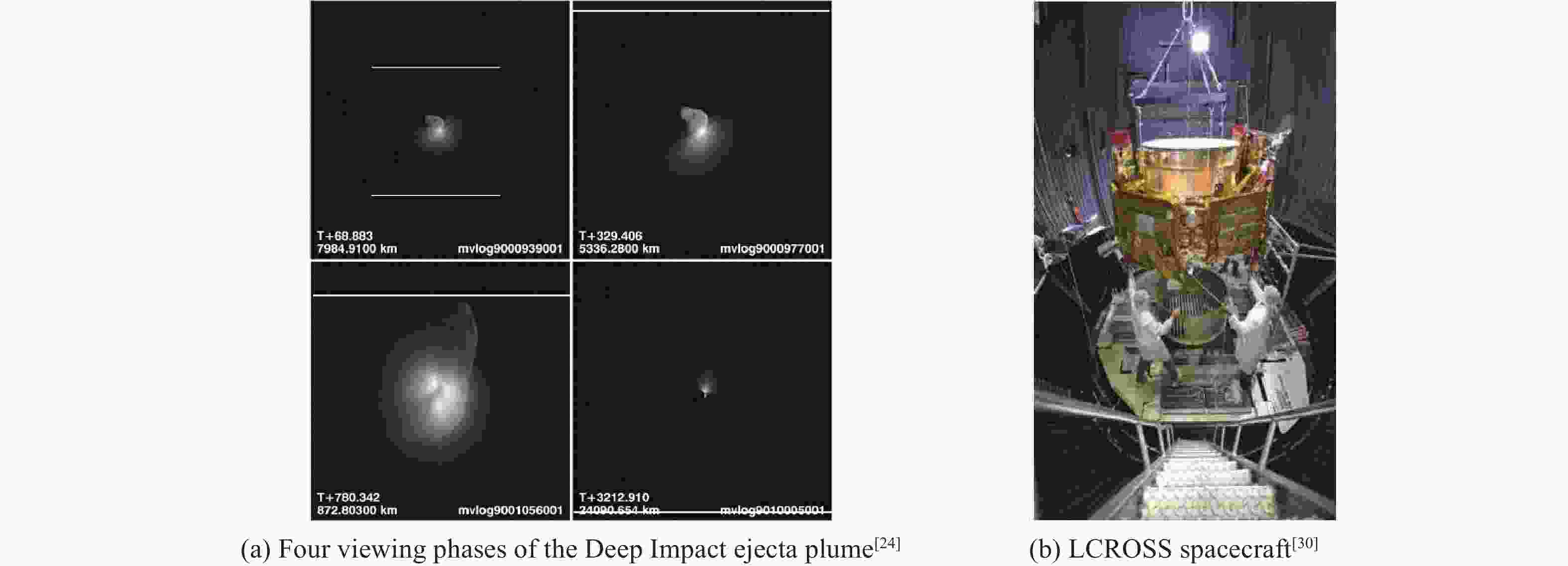
 下载:
下载:


